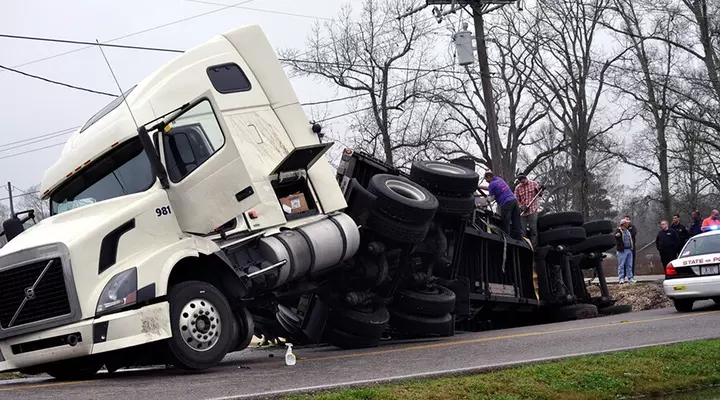Should you hire a Covington Truck Accident Lawyer?
Here are some important things to consider. Does the lawyer have domain knowledge and expertise in federal trucking safety regulations? Does she know about the specific insurance requirements?
Is your lawyer prepared to take the case to trial?
Deciding whether to file a lawsuit or settle out of court in truck accidents involves a careful consideration of several factors. Both options have their advantages and potential drawbacks, and the choice depends on the specific circumstances of the case.
Filing a lawsuit in a truck accident case can provide the opportunity for a formal legal process where evidence is presented, witnesses testify, and a judge or jury makes a final decision. This route is often chosen when liability is disputed or when negotiations with the responsible party or their insurance company are unproductive. Lawsuits can provide a platform for seeking higher compensation, especially if the damages are significant. However, it’s important to note that lawsuits can be time-consuming, expensive, and emotionally draining, as they involve lengthy legal procedures, court appearances, and uncertainty about the outcome.
On the other hand, settling out of court in a truck accident case involves reaching an agreement with the other party before trial. This can be a faster and less costly option compared to a lawsuit. Settlements can also provide a level of control over the outcome, as both parties negotiate the terms of the agreement. Moreover, settlements often result in a more predictable outcome, avoiding the uncertainties that come with a trial where the decision is in the hands of a judge or jury. However, settlements might lead to lower compensation than what could potentially be awarded in a successful trial, and there’s a possibility that the responsible party’s insurance company might push for a lower settlement amount.
The decision between filing a lawsuit and settling out of court in truck accident cases should also take into account the evidence available. Strong evidence that clearly establishes liability and damages can strengthen your position during negotiations and potentially lead to a favorable settlement. Conversely, if evidence is weak or there’s a risk of it being challenged during trial, settling might be a more pragmatic option to secure at least some compensation.
Ultimately, the choice between filing a lawsuit and settling out of court in truck accident cases is highly individual and should be based on careful evaluation of factors such as the severity of damages, liability, negotiation progress, financial resources, and the emotional toll of litigation. Consulting with an experienced truck accident attorney can provide valuable insights and guidance, helping individuals make an informed decision that aligns with their best interests and the specifics of their case.
18 wheeler cases are different than car accident cases.
18-wheeler accidents and car accidents differ significantly in terms of their impact, causes, consequences, and legal implications. Understanding these differences is crucial for individuals involved in accidents and legal professionals handling such cases.
Firstly, the size and weight of an 18-wheeler, also known as a semi-truck or tractor-trailer, far exceed that of a regular car. This substantial size difference makes 18-wheeler accidents often more devastating in terms of property damage, injuries, and fatalities. The sheer force generated by the collision between an 18-wheeler and a smaller car can lead to catastrophic outcomes.
Secondly, the causes of these accidents can vary. Car accidents often result from factors like distracted driving, speeding, or running red lights. On the other hand, 18-wheeler accidents might be caused by issues unique to commercial vehicles, such as driver fatigue due to long hours on the road, improper loading, maintenance failures, or even issues with the truck’s braking system.
In terms of consequences, injuries sustained in 18-wheeler accidents tend to be more severe due to the massive weight difference. Occupants of smaller vehicles are at a higher risk of serious injuries, including spinal injuries, traumatic brain injuries, and even fatalities. These injuries can result in longer recovery times, increased medical expenses, and significant emotional distress for the victims and their families.
From a legal perspective, 18-wheeler accidents often involve more complex liability issues. Not only may the truck driver be held responsible, but also the trucking company, maintenance contractors, and even the manufacturer in cases of faulty truck components. This complexity arises due to the various parties involved in the operation, maintenance, and regulation of commercial vehicles. As a result, legal proceedings related to 18-wheeler accidents can be more intricate than those for car accidents.
In conclusion, while both 18-wheeler and car accidents can lead to unfortunate outcomes, the severity of damages, causes, consequences, and legal intricacies distinguish the two. Individuals involved in such accidents should be aware of these differences when seeking legal recourse or compensation. Legal professionals specializing in truck accident cases are essential for navigating the complexities inherent in these situations and ensuring that victims receive appropriate support and justice.

